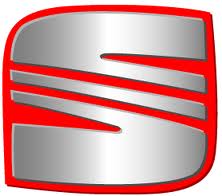Leon Mk2
|
Removing and installing parts of fuel supply system
Checking fuel pump
|
 |
|
Check conditions
|
 |
|
Checking function and voltage supply Note: Check whether a coded radio is installed as during the forthcoming work sequences the battery earth strap must be disconnected. Obtain radio code first if necessary.
|
 |
|
If the fuel pump does not run: → Pull connector off No. 1 cylinder injector and connect remote control V.A.G 1348/3A.
Fuel pump runs:
=> Current flow diagrams, Electrical fault finding and Fitting locations |
 |
|
|
Fuel pump does not run:
LED does not light up: |
 |
|
=> Current flow diagrams, Electrical fault finding and Fitting locations LED lights up (voltage supply OK.):
If no open circuit can be found:
Checking delivery rate Check conditions
Test sequence
Warning!
Fuel system is under pressure! Before opening the system place a cloth around the connection. Then release pressure by carefully loosening the connection. |
 |
|
|
 |
|
|
 |
|
*) Minimum delivery cm3/30 seconds **) Voltage at fuel pump with engine stopped and pump running (approx. 2 volts less than battery voltage). Example: During the test, a voltage of 12.2 volts is measured at the battery. As the voltage at the pump is approx. 2 volts less than the battery voltage, the result is a minimum delivery of 200 cm3/30 s. If the minimum delivery rate is not attained:
|
 |
|
If the minimum delivery rate is now attained:
If the minimum delivery rate is again not attained:
Only when up to now no fault has been detected:
If the delivery rate has been attained but nevertheless you suspect a fuel supply system fault (e.g. intermittent failure of fuel supply system):
|
 |
|
Note: If the fuel system malfunction is intermittent, you can perform the check during a test drive with the help of a 2nd person. If the current draw is exceeded:
Checking fuel pump non-return valve |
 |
|
|
Test conditions
Test sequence Note: With this check the fuel supply pipe connections from the fuel delivery unit to the point at which the pressure gauge V.A.G 1318 is connected will be checked for leaks at the same time.
Warning!
Danger of spray when opening the shut-offtap, hold container over the free connection of the pressure gauge.
If the pressure drops further:
If no fault is detected in the wiring:
|

